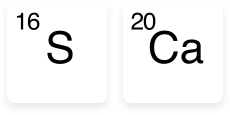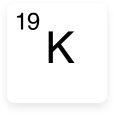
Gypsum
GYPSUM IS A SOIL CONDITIONER
Gypsum is commonly used as a soil conditioner as it contains significant levels of calcium. Gypsum also contains sulphur in an absorbable, quick response form ideal for plant roots. However due to its pH being 8.5, it has little if any effect on the soil pH and cannot be used as a substitute for lime. It is used as a soil conditioner when the soil pH doesn’t require changing and the soil is still quite low in calcium and high in magnesium.
Gypsum is very effective in alkaline soils that have high concentrations of sodium and/or magnesium. When a soil has high levels of sodium and magnesium present, clay particles bind together resulting in a very tight and compacted soil profile. This reduces water infiltration, possible seedling emergence and pasture production. By applying Gypsum to the soil, the release of calcium ions allows the displacement of sodium and magnesium to occur, which results in a better-balanced soil.
Where do we source Gypsum?
Gypsum is a naturally occurring soft crystalline mineral, commonly found in arid inland area in regional Victoria. It is quite easy to mine and process, which is reflected in the price ex. the quarries. Gypsum is typically categorised in three grades. Grade 1 is the highest grade and the only type of gypsum we recommend. It typically contains a minimum of 15% S and 19% Ca, however, it can contain higher levels.
Typical Analysis


 About Us
About Us
 History
History
 Team
Team
 Careers
Careers








 Farm Mapping
Farm Mapping
 NPKS Reporting
NPKS Reporting
 Agronomy
Agronomy
 Soil Testing
Soil Testing
 Bin Delivery
Bin Delivery
 Spreading
Spreading
 Blending
Blending